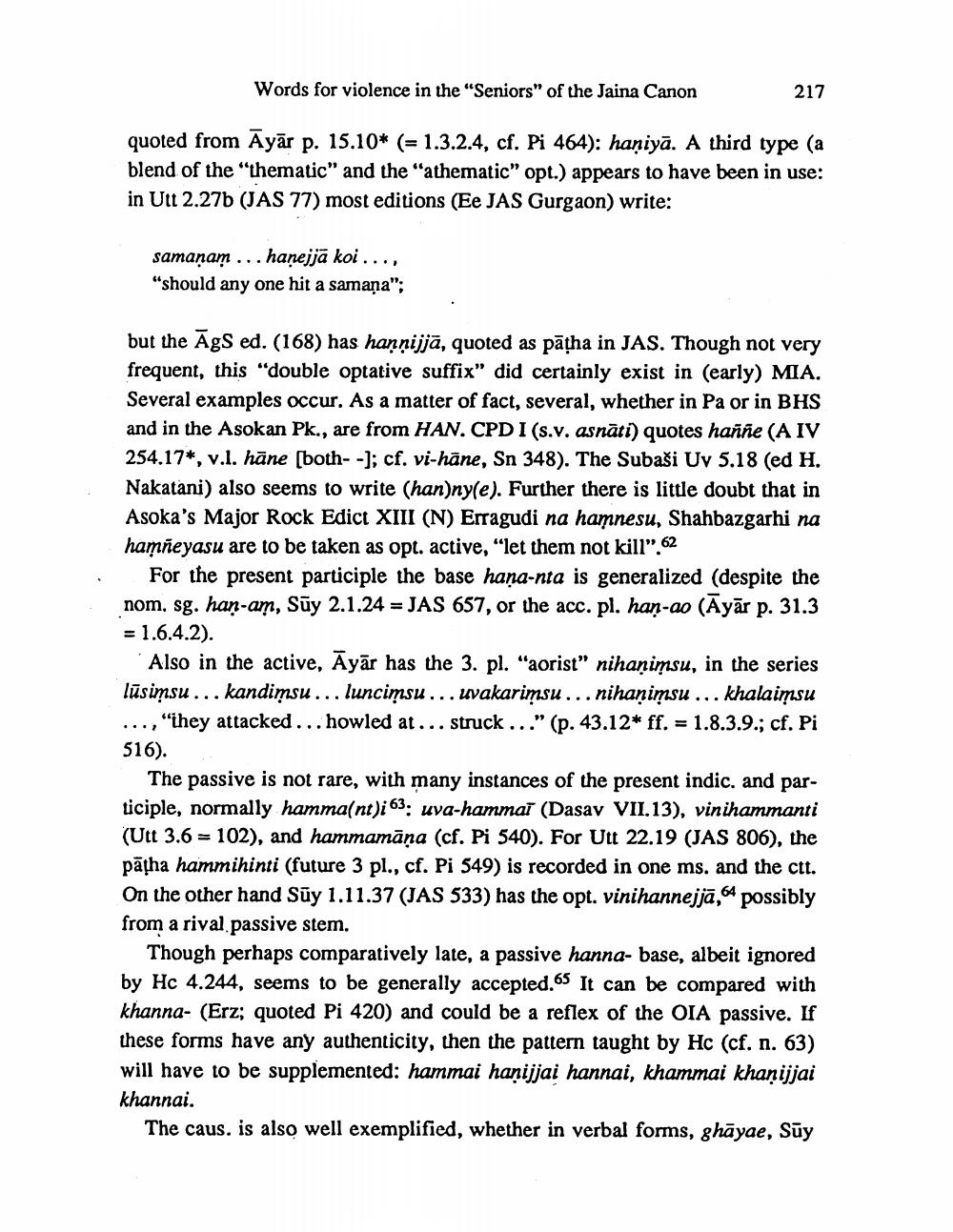________________
Words for violence in the "Seniors" of the Jaina Canon
217
quoted from Ayār p. 15.10* (= 1.3.2.4, cf. Pi 464): haniyā. A third type (a blend of the "thematic" and the "athematic" opt.) appears to have been in use: in Uut 2.27b (JAS 77) most editions (Ee JAS Gurgaon) write:
samaņam ... hanejjā koi ..., "should any one hit a samaņa";
.
but the ĀgS ed. (168) has haņņijjā, quoted as pātha in JAS. Though not very frequent, this “double optative suffix" did certainly exist in (early) MIA. Several examples occur. As a matter of fact, several, whether in Pa or in BHS and in the Asokan Pk., are from HAN. CPDI (s.v. asnāti) quotes haññe (A IV 254.17*, v.1. hāne [both--); cf. vi-hāne, Sn 348). The Subaši Uv 5.18 (ed H. Nakatani) also seems to write (han)ny(e). Further there is little doubt that in Asoka's Major Rock Edict XIII (N) Erragudi na hamnesu, Shahbazgarhi na hamñeyasu are to be taken as opt. active, “let them not kill”. 62
For the present participle the base hana-nta is generalized (despite the nom. sg. han-am, Sūy 2.1.24 = JAS 657, or the acc. pl. han-ao (Ayār p. 31.3 = 1.6.4.2).
* Also in the active, Āyār has the 3. pl. "aorist” nihaạimsu, in the series lūsim.su ... kandimsu... luncimsu... uvakarimsu... nihanimsu ... khalaimsu ..., "they attacked... howled at ... struck..." (p.43.12* ff. = 1.8.3.9.; cf. Pi 516).
The passive is not rare, with many instances of the present indic. and participle, normally hamma(nt); 63: uva-hammai (Dasav VII. 13), vinihammanti (Utt 3.6 = 102), and hammamāņa (cf. Pi 540). For Utt 22.19 (JAS 806), the pātha hammihinti (future 3 pl., cf. Pi 549) is recorded in one ms. and the ctt. On the other hand Sūy 1.11.37 (JAS 533) has the opt. vinihannejjā, 64 possibly from a rival passive stem.
Though perhaps comparatively late, a passive hanna- base, albeit ignored by Hc 4.244, seems to be generally accepted.65 It can be compared with khanna- (Erz; quoted Pi 420) and could be a reflex of the OIA passive. If these forms have any authenticity, then the pattern taught by Hc (cf. n. 63) will have to be supplemented: hammai hanijjai hannai, khammai khanijjai khannai.
The caus. is also well exemplified, whether in verbal forms, ghāyae, Sūy




